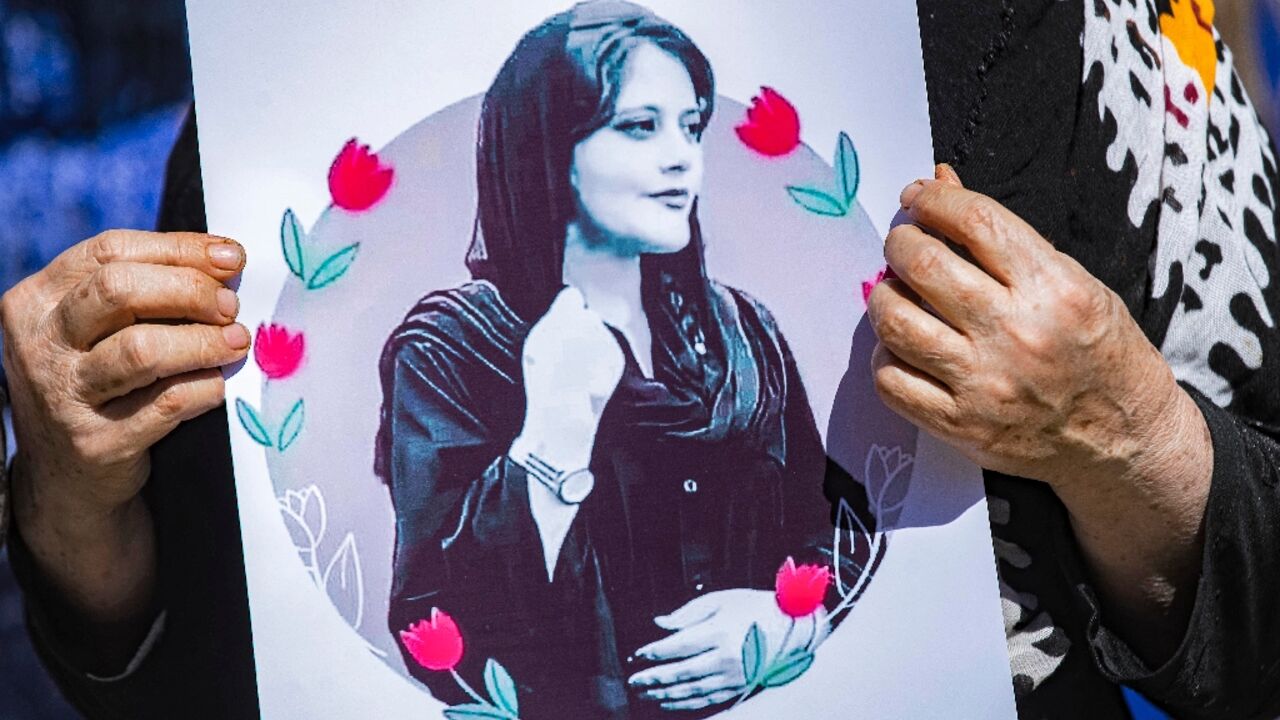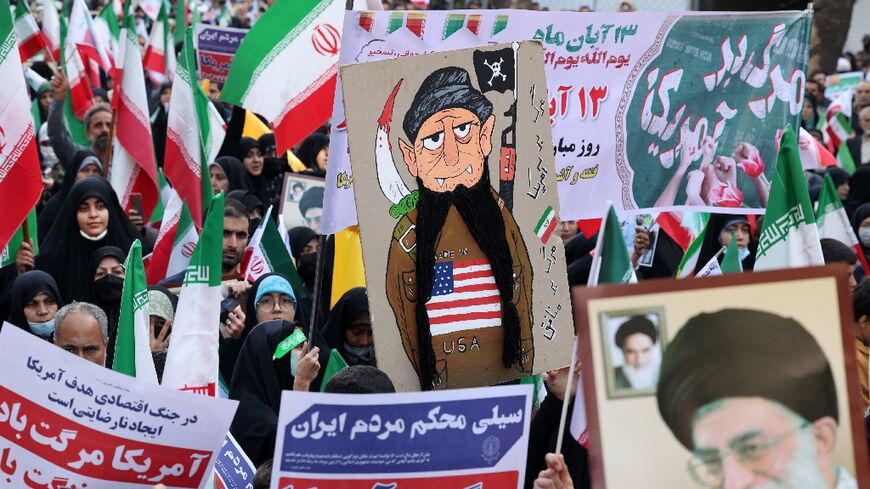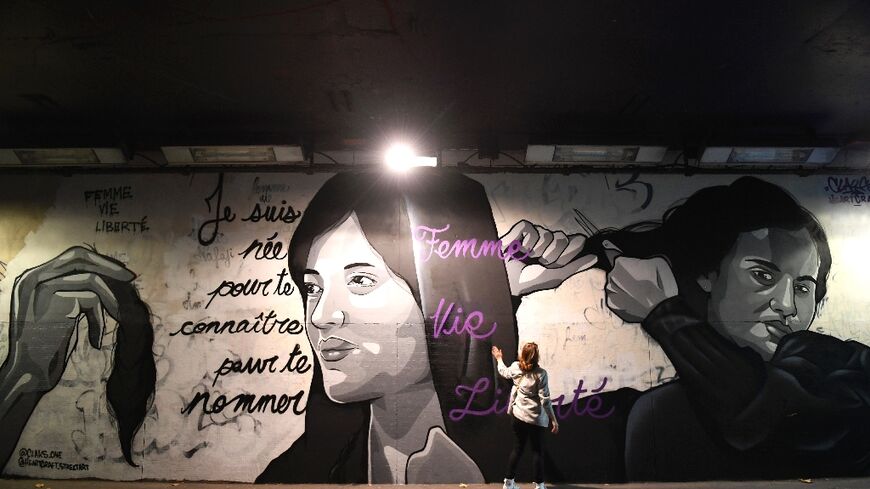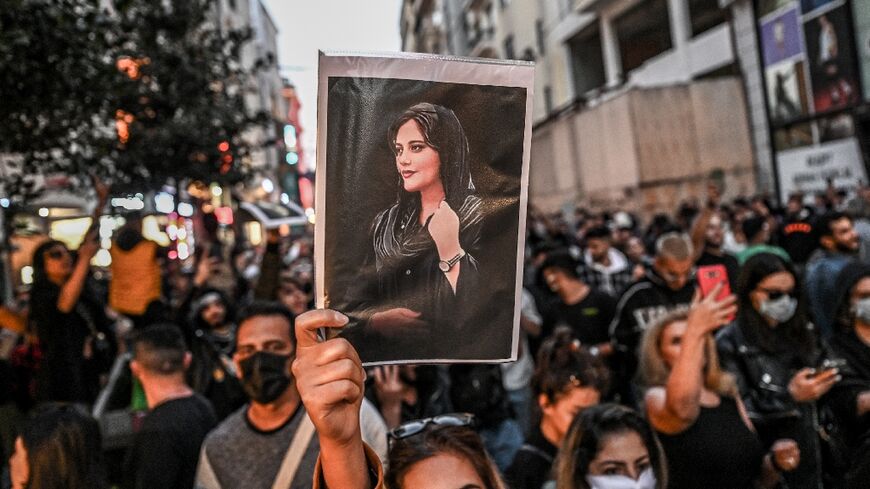Mourners hit streets as Iran protests take bloody turn

Hundreds of mourners poured onto the streets of an Iranian city Thursday, defying a lethal crackdown on protests over Mahsa Amini's death that shows signs of turning even bloodier.
Iran's foreign minister and media raised the spectre of civil war.
This week's protests coincide with the third anniversary of "Bloody Aban" -- or Bloody November -- when hundreds were killed in a crackdown on street violence that erupted over a shock overnight decision to hike fuel prices.
Security forces on Thursday killed one protester in Bukan and two in Sanandaj, where mourners were paying tribute to "four victims of the popular resistance" 40 days after they were slain, the Oslo-based Hengaw rights group said.
The state news agency IRNA later confirmed that police colonel Hassan Youssefi was killed after being stabbed repeatedly in Sanandaj, about 200 kilometres (124 miles) west of the capital Tehran.
People had thronged the streets even as the sound of gunfire was heard in a video published by Hengaw and verified by AFP.
Separately, two Basij members were stabbed to death and three others injured as they sought to intervene to prevent "rioters" from threatening shopkeepers in the northeastern city of Mashhad, the news agency said.
"Death to the dictator," protesters chanted in another online video as they marched down a street in Sanandaj filled with bonfires, directing their fury at Iran's supreme leader Ayatollah Ali Khamenei.
The tradition in Iran of holding a "chehelom" mourning ceremony 40 days after a death has fuelled the demonstrations that have become the regime's biggest challenge from the street in decades.
Fears are growing that the regime is turning "more violent after being unable to suppress the people for two months", said Saeid Golkar, from the University of Tennessee at Chattanooga.
Speculation has mounted that Iran's leadership has decided to crush the protest movement in the same way that it did in November 2019, when security forces killed at least 304 people, according to Amnesty International.
- Boy killed -
The demonstrations were sparked by the death of 22-year-old Amini on September 16, after her arrest for allegedly violating Iran's strict dress code for women.
The unrest has been fanned by fury over the brutal enforcement of the mandatory hijab law, but has grown into a broad movement against the theocracy that has ruled Iran since the 1979 Islamic Revolution.
Gunmen on motorcycles killed nine people in two mysterious attacks Wednesday, state media said, as the protests intensified.
In the southwestern city of Izeh, "a terrorist group took advantage of a gathering of protesters" to shoot dead seven people -- including a 45-year-old woman, two children aged nine and 13, IRNA said.
Three police officers and two Basij members were wounded, a security official told state TV.
But a family member of the nine-year-old boy killed on Wednesday, identified as Kian Pirfalak, accused security forces of carrying out the attack. The accusation came in a tweet shared by US-funded Radio Farda.
"He was going home with his father and was targeted with bullets by the corrupt regime of the Islamic republic. Their car was attacked from all four sides," the unidentified family member is heard saying in an audio recording.
In a separate attack hours later in Iran's third city Isfahan, two assailants on a motorcycle shot dead two members of the Basij paramilitary force and wounded another two, Fars news agency said.
IRNA later reported a police colonel who was injured Wednesday in Isfahan died of his wounds on Thursday in hospital.
Elsewhere, Hengaw accused the security forces of killing at least 10 people within a 24-hour period up until late Wednesday at protests in several cities.
IRNA said "rioters" had damaged and burned public property in Bukan, including setting fire to the municipality building. It added that police later dispersed them.
Another police colonel was stabbed to death in Sanandaj, IRNA said.
- 'Civil war' -
Iran's Foreign Minister Hossein Amir-Abollahian accused Israel and its allies of plotting a "civil war in" the Islamic republic.
But, he tweeted, they "must know that Iran is not Libya or Sudan" and that the "wisdom of our people has thwarted their plan".
Fars news agency, which is close to the authorities, said the attacks Wednesday show "that those who want to dismantle the country have entered into the armed action phase".
No one has claimed responsibility for the motorcycle attacks.
These actions were carried out "with the aim of inciting the people and security forces to a civil war," after a "large quantity of weapons" clandestinely entered the country, Fars said.
General Hossein Salami, head of the Revolutionary Guards, said Iran was facing a "conspiracy" by foreigners including the US, Israel and Saudi Arabia who "are preparing to fight God, his prophet and the martyrs." He was quoted by Fars.
Iran Human Rights, another Oslo-based organisation, said Wednesday that security forces had killed at least 342 people since the start of protests.
Iran was seeking the death penalty for at least 21 people in "sham trials designed to intimidate" protesters, Amnesty International said.





